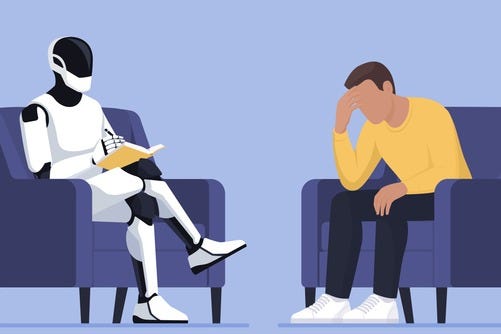
Christina Geiselhart said she first noticed the use of AI tools in therapy while teaching her students.
"I started noticing it popping up more and more within their work and having to talk with them and have conversations with them about why they were using this and why not to use it, especially in this field," she said.
Geiselhart is a professor and a Licensed Clinical Social Worker at Thriveworks. Mental health professionals in the state like Geiselhart have pushed for regulation on programs that use AI to mirror therapy.
Earlier this month, Governor J.B. Pritzker signed an act into law that bans the use of AI in therapy and psychotherapy services, specifically its use in treatment and decision-making.
"This legislation was brought up to protect the citizens in Illinois who are seeking out mental health services so that they are provided quality services and not just random opinions," Geiselhart said.
She said while AI can be helpful with everyday, administrative tasks like documentation and insurance, there's concern when it comes to using AI for therapeutic and clinical advice.
"Therapy is an art form," she said. "It is not a cookie cutter, read the textbook and you can just apply it. That's the concern with Chat GPT is it's gathering random information. It's giving you kind of a cookie cutter approach. It does not know your individual client. It does not know their situations, cultural nuances, nonverbal body cues."
That's why she said it's important to know your intentions before using a platform like Chat CPT for advice.
"If your intention is to get kind of a quick answer guidance on something as far as how to word an email so it doesn't come across as aggressive, ... I think those things are really appropriate and can really help. But, if you're diving deeper into why I am the way I am, that is such a deeper conversation. You are not going to be able to explore that the way that you really should with a chat."
She said she hopes the legislation can lead to more conversations and research into how AI can be safely and effectively used in the mental health field.
"I think this is a really great way for us to just slow down. Let's look at this. Let's get feedback and figure out what we want to do going forward and protecting our constituents," she said.
